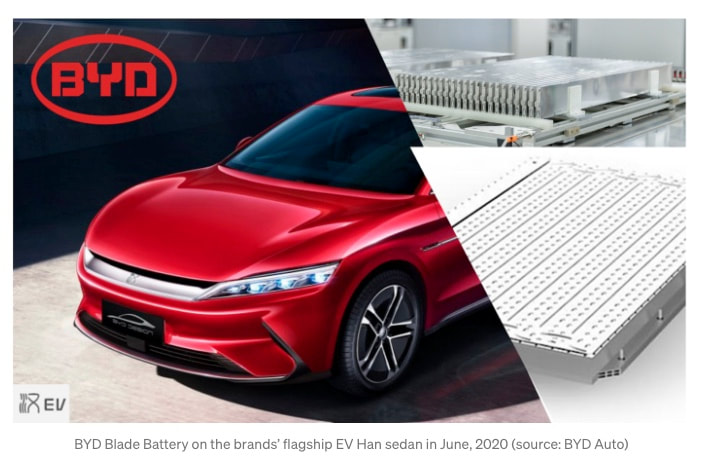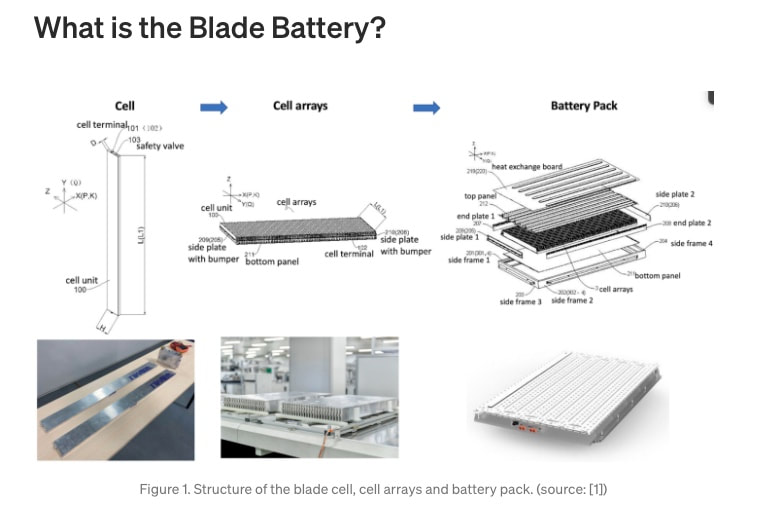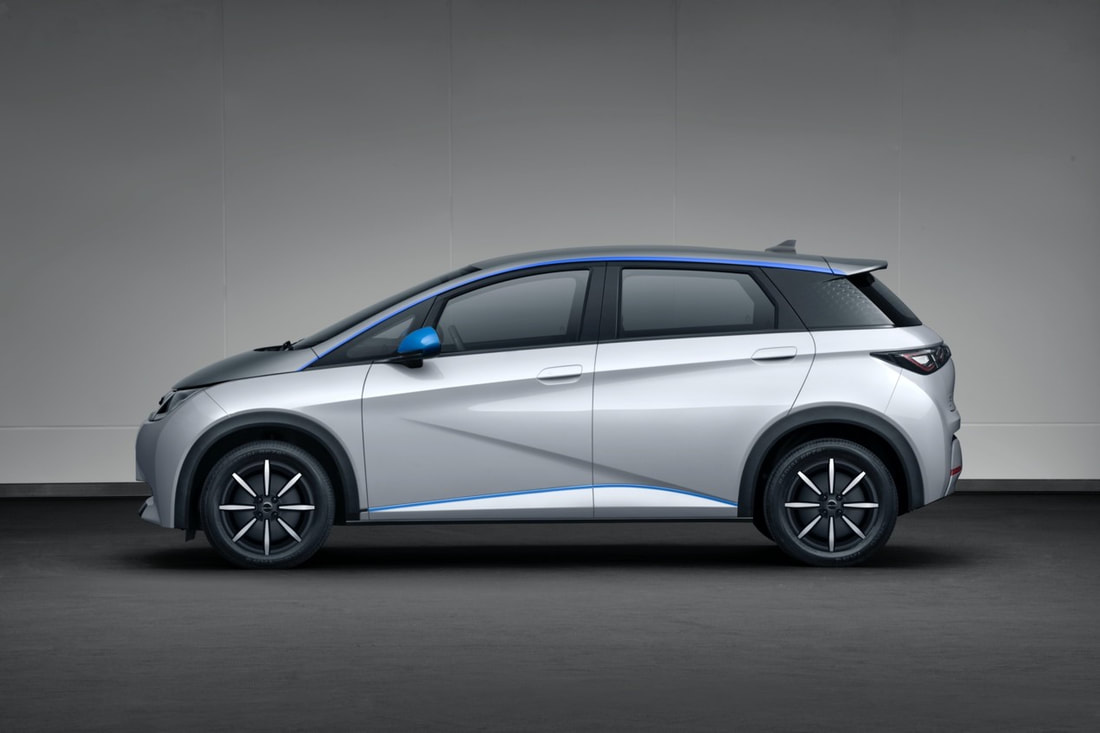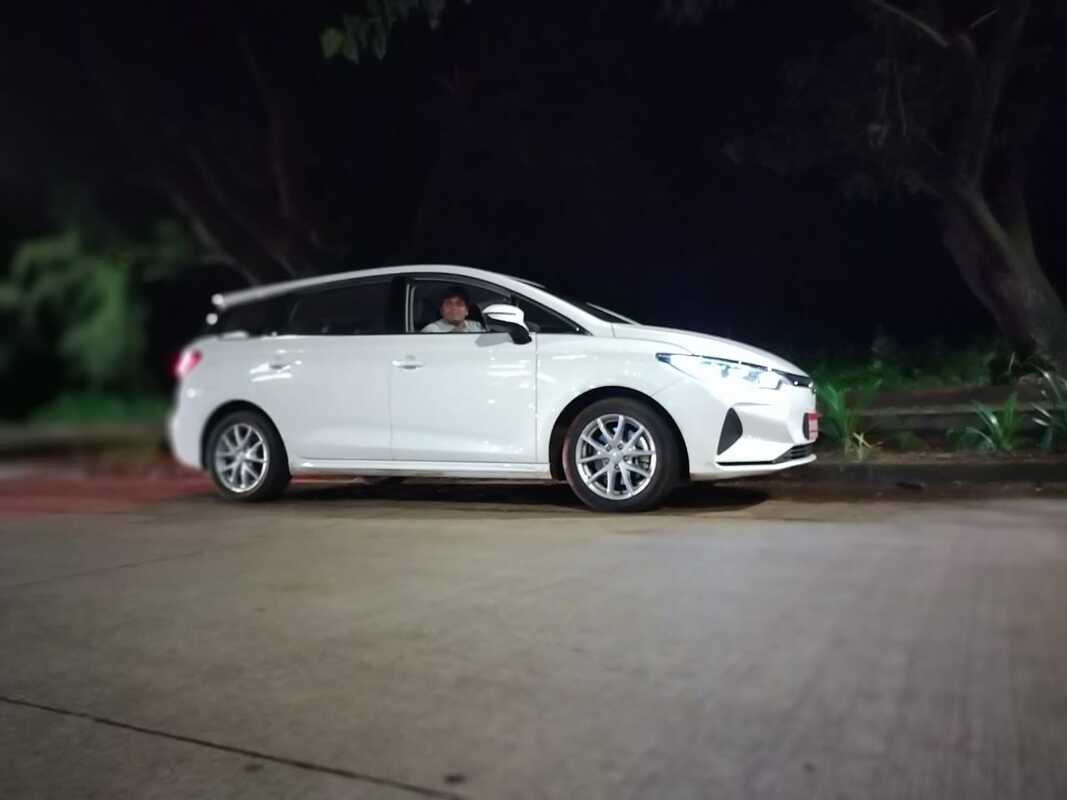By Abhishek & Kamlesh
Continuing our electric car watch, where we will talk about EV plans of major car brands, take a look at their EV vision, and go over their technology platforms. We will also discuss the EV models in production and look at what we can expect for India. In this week’s episode we will talk about the Chinese EV maker - BYD or Build Your Dreams. We talk about their game changing blade battery and their incredible sales of electric cars.
Continuing our electric car watch, where we will talk about EV plans of major car brands, take a look at their EV vision, and go over their technology platforms. We will also discuss the EV models in production and look at what we can expect for India. In this week’s episode we will talk about the Chinese EV maker - BYD or Build Your Dreams. We talk about their game changing blade battery and their incredible sales of electric cars.
Video: BYD's Blade Battery & World EV leader
|
Introduction
BYD sells a full range of electrified Buses, Trucks, Cars and they are global leaders in the electric bus space. The electric buses we see in cities like Pune, Hyderabad and others are made using BYD technology. When it comes to cars, they are huge in China and only recently have entered the European market. Warren Buffet’s American company Berkshire Hathway owns 8.5% of BYD. Berkshire Hathaway’s 8.2% stake in the automaker held a market value of $5.9 billion at the end of 2020. The founder of BYD is Wang Chuanfu, who is a chemist and a researcher at the company. Buffett partner Charlie Munger described Wang as “a combination of Thomas Edison and [General Electric’s] Jack Welch—something like Edison in solving technical problems, and something like Welch in getting done what he needs to do. I have never seen anything like it. Wang from the start has focused on electric cars using cells with the Lithium Iron Phosphate (LFP) chemistry. While some manufacturers like GM and Hyundai struggle with battery recalls and fire issues, BYD electric cars are safe and affordable. And now in 2021, BYD now is the 4th largest battery manufacturer in the world. Vertical Integration For me the main advantages that BYD will have this decade is - vertical integration. BYD makes most of the complex components that go in an electric car, in house. Here are 3 important points to consider.
|
|
Blade Battery - Game Changer
In 2020, BYD unveiled their LFP based Blade Battery. According to the published BYD patents, the cell unit of the Blade Battery is designed based on a prismatic form factor. Unlike a traditional prismatic cell, however, the length of the Blade Battery is extremely long while the depth and height are relatively short. As a result, the shape of the cell unit is like a blade. The Blade battery pack is expected to be far less susceptible to fire, even when severely damaged. In a nail penetration test, for example, the new battery only hit surface temperatures of 30 to 60 degrees Celsius. In comparison, the lithium-ion comparison battery was said to have reached 500 degrees and an LFP block battery was said to have reached 200 to 400 degrees. Even an overcharge of 260 per cent did not lead to a fire or explosion in the cell. Apart from nail penetration tests, the blade battery was driven over by trucks, it was hit by objects and still the cells worked.
This blade battery pack, according to me, is a game changer. I have observed over the years how western electric car makers often run after acceleration times or more and more range. This leads them to use battery packs with chemistries like NMC that have higher “energy density” but perform poorly in safety. But BYD’s LFP battery technology takes the middle route with a major emphasis on safety. Even Elon Musk admits that LFP’s are more cost effective and using Iron in the cathode compared to using Nickel or Cobalt won’t lead to supply chain issues later this decade. Elon said it himself even though most Tesla’s use battery packs with NMC cells. So it is clear the writing is on the wall for the NMC batteries.
The blade batteries offer more advantages.
In 2020, BYD unveiled their LFP based Blade Battery. According to the published BYD patents, the cell unit of the Blade Battery is designed based on a prismatic form factor. Unlike a traditional prismatic cell, however, the length of the Blade Battery is extremely long while the depth and height are relatively short. As a result, the shape of the cell unit is like a blade. The Blade battery pack is expected to be far less susceptible to fire, even when severely damaged. In a nail penetration test, for example, the new battery only hit surface temperatures of 30 to 60 degrees Celsius. In comparison, the lithium-ion comparison battery was said to have reached 500 degrees and an LFP block battery was said to have reached 200 to 400 degrees. Even an overcharge of 260 per cent did not lead to a fire or explosion in the cell. Apart from nail penetration tests, the blade battery was driven over by trucks, it was hit by objects and still the cells worked.
This blade battery pack, according to me, is a game changer. I have observed over the years how western electric car makers often run after acceleration times or more and more range. This leads them to use battery packs with chemistries like NMC that have higher “energy density” but perform poorly in safety. But BYD’s LFP battery technology takes the middle route with a major emphasis on safety. Even Elon Musk admits that LFP’s are more cost effective and using Iron in the cathode compared to using Nickel or Cobalt won’t lead to supply chain issues later this decade. Elon said it himself even though most Tesla’s use battery packs with NMC cells. So it is clear the writing is on the wall for the NMC batteries.
The blade batteries offer more advantages.
- BYD says that the blade battery’s space utilisation is 50 per cent more efficient than conventional lithium iron phosphate battery packs due to its “optimised battery pack structure.
- BYD also claimed the pack can be used for upto 1.2 million km after 3,000 cycles of charging / discharging.
- One of the issues with LFP batteries was that their energy density was poor and thus were not suited for electric cars with long range. But now the BYD blade batteries can offer pack level energy density of upto 140 Wh/kg which is comparable to some NMC batteries and is better than CATL’s LFP battery pack’s energy of 125 Wh/kg, which is used in the Tesla Model 3
- BYD is also able to make the blade batteries at costs less than $85/kWh, which is lower than the estimated cost of the latest LFP pack from CATL (~$100/kWh) used in the TESLA Model 3 in China.
Cars using Blade Battery
Are there any cars using the Blade battery pack? Yes.
Are there any cars using the Blade battery pack? Yes.
- The Han EV is a mid-size luxury sedan and all its models are designed with a 76.9 kWh battery pack, which fast charges from 30-80% in 25 minutes. The base model of Han EV is rear-wheel drive with a reported all-electric range (NEDC) of 605 km. Which is incredible.
- There is also the electric crossover SUV, "Tang" SUV, which also uses the ‘Blade Battery’ with a capacity of 86.4 kWh for a range of about 500 kilometres.
- The 2022 BYD E6 large people mover electric cars are being sold in select markets for around Rs 21 lakhs. We recently had photos of the car being tested in India.
- BYD recently showcased the affordable subcompact Dolphin electric car. It is the first BYD car based on the new BYD e platform 3.0 architecture, of course, equipped with the BYD Blade Battery. There are 300 and 400 km range options and are sold at Rs 11 Lakhs in China.
BYD: Global leader in Electric Cars
All of this focus on RnD and cost reduction has resulted in BYD breaking record sales in 2021. BYD sold 61,409 new electric vehicles in August 2021, compared with 15,283 in 2020, making BYD among the top 3 EV players globally. Analysts say that BYD is expected to achieve 600,000 vehicle sales this year, 820,000 in 2022 and 1 million in 2023. And more than 90% of these will be EVs. I feel this is extremely conservative. In the next few years, once they open up in Europe, they will make huge sales. Europeans, unlike Americans and even Indians these days, are sensible people and prefer small, affordable, and practical electric cars. BYD can fill that space. BYD is also betting big in the UK, Singapore, Australia, and NZ. So the numbers will be even higher.
It will be interesting to see what part Geopolitics plays in the future of Chinese investment and sales of EV's in the rest of the World. It's great to see Chinese car companies like BYD pushing ahead with the electrification of the World's transport systems, especially given how our legacy auto manufacturers seem impotent when it comes to EVs. If there are no major geopolitical issues, then we can safely say that BYD will become a top 3 worldwide automaker by 2030. They will capture most of the Chinese and European car market and will eat into the market share enjoyed by Japanese and American car makers like Toyota, Honda, and Ford who are scared of EVs.
BYD India Plans
Regarding India, we have seen the BYD e6 passenger and cargo vans on Indian roads. BYD India is based in Madras and may be interested in plying their commercial vans in India. Director of BYD India Ketsu Zhang said - "We are eager to bring our advanced green technology to assist Indian businesses to achieve their EV goals. We have received tremendous response for our electric buses as well as forklifts, especially from the Indian public and B2B sector. Seeing this, we have decided to introduce more electric commercial vehicles to the B2B segment starting Q4, 2021. Moving forward, we would love to be a part of every Indian consumer’s journey into electric vehicles, the plans for which are still in the pipeline stage”
My personal wish is that BYD get all their variants of electric cars including the small Dolphin car, make them in India, and really push our car makers to launch more EV’s. But we have to start somewhere and we are glad BYD is here in India too.
Sure, I expect 50% of the comments below to mention some form of anti China nonsense. But chew on this: Warren Buffet’s company Berkshire Hathway owns 8.5% of BYD, which is an American company. Himalayan Capital, another American company, has a stake too, and other American fund companies own a huge percentage of BYD. So knock yourselves out with the China hatred. I don’t like their communist government any more than you do, but I believe in the free market, and all the trends are pointing to the fact that BYD is poised to be the top 3 car makers by 2030.
Thanks guys for watching/reading. Do write in the comments below on your observation and research you may have done on BYD’s EV platform and batteries.
All of this focus on RnD and cost reduction has resulted in BYD breaking record sales in 2021. BYD sold 61,409 new electric vehicles in August 2021, compared with 15,283 in 2020, making BYD among the top 3 EV players globally. Analysts say that BYD is expected to achieve 600,000 vehicle sales this year, 820,000 in 2022 and 1 million in 2023. And more than 90% of these will be EVs. I feel this is extremely conservative. In the next few years, once they open up in Europe, they will make huge sales. Europeans, unlike Americans and even Indians these days, are sensible people and prefer small, affordable, and practical electric cars. BYD can fill that space. BYD is also betting big in the UK, Singapore, Australia, and NZ. So the numbers will be even higher.
It will be interesting to see what part Geopolitics plays in the future of Chinese investment and sales of EV's in the rest of the World. It's great to see Chinese car companies like BYD pushing ahead with the electrification of the World's transport systems, especially given how our legacy auto manufacturers seem impotent when it comes to EVs. If there are no major geopolitical issues, then we can safely say that BYD will become a top 3 worldwide automaker by 2030. They will capture most of the Chinese and European car market and will eat into the market share enjoyed by Japanese and American car makers like Toyota, Honda, and Ford who are scared of EVs.
BYD India Plans
Regarding India, we have seen the BYD e6 passenger and cargo vans on Indian roads. BYD India is based in Madras and may be interested in plying their commercial vans in India. Director of BYD India Ketsu Zhang said - "We are eager to bring our advanced green technology to assist Indian businesses to achieve their EV goals. We have received tremendous response for our electric buses as well as forklifts, especially from the Indian public and B2B sector. Seeing this, we have decided to introduce more electric commercial vehicles to the B2B segment starting Q4, 2021. Moving forward, we would love to be a part of every Indian consumer’s journey into electric vehicles, the plans for which are still in the pipeline stage”
My personal wish is that BYD get all their variants of electric cars including the small Dolphin car, make them in India, and really push our car makers to launch more EV’s. But we have to start somewhere and we are glad BYD is here in India too.
Sure, I expect 50% of the comments below to mention some form of anti China nonsense. But chew on this: Warren Buffet’s company Berkshire Hathway owns 8.5% of BYD, which is an American company. Himalayan Capital, another American company, has a stake too, and other American fund companies own a huge percentage of BYD. So knock yourselves out with the China hatred. I don’t like their communist government any more than you do, but I believe in the free market, and all the trends are pointing to the fact that BYD is poised to be the top 3 car makers by 2030.
Thanks guys for watching/reading. Do write in the comments below on your observation and research you may have done on BYD’s EV platform and batteries.




